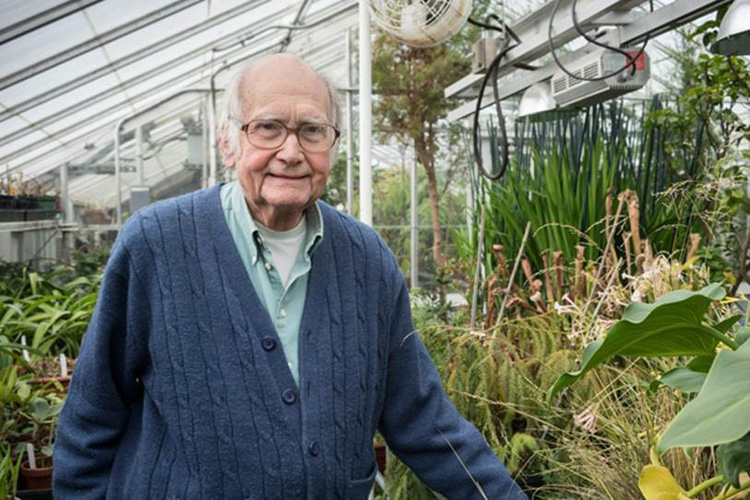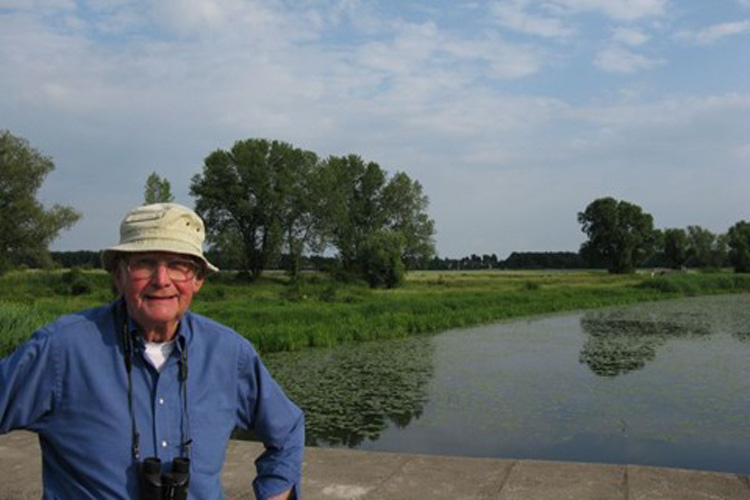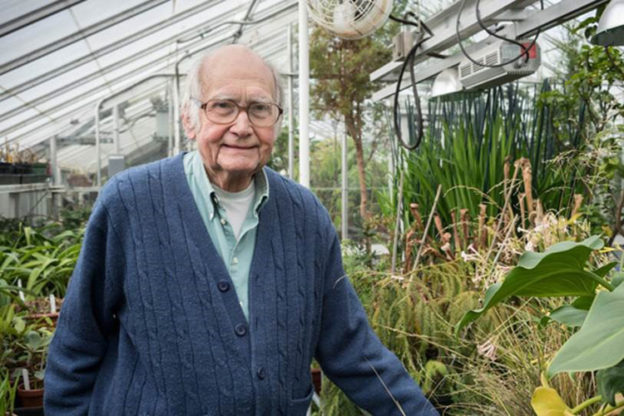In Your Words is a regular feature of Mass Audubon’s Explore member newsletter. Each issue, a Mass Audubon member, volunteer, staff member, or supporter shares his or her story—why Mass Audubon and protecting the nature of Massachusetts matters to them. If you have a story to share about your connection to Mass Audubon, email [email protected] to be considered for In Your Words in a future issue!

I arrived in Northampton on Labor Day weekend in the fall of 1961. I was 25 and unmarried. My second-floor apartment looked out on a parking lot and then beyond to the Mill River.
Sometime over that weekend I decided to explore and followed the Mill River down through the meadows. Crossing the bridge where the river flows into the oxbow and trying to return back on the opposite side, I encountered signs that informed me I was entering Arcadia Wildlife Sanctuary. Not wanting to trespass, I turned around and retraced my earlier route into town.
I had been newly hired by the Botany Department at Smith College to teach, among other subjects, plant ecology. I wanted to take my students on a field trip and wondered whether I could take them to the wildlife sanctuary since the state’s woodlands were closed due to drought and a threat of forest fires.
We drove out that Friday afternoon to the white farmhouse that serves as Arcadia’s offices and knocked on the door. The person who answered was Ed Mason, the sanctuary director. He graciously welcomed us. We walked down the trail to the Mill River and its marshes, the first of many such expeditions through the years for class field trips and an assortment of independent research projects.

I learned that a colleague was serving on the sanctuary advisory committee, and she eventually asked me to replace her. It was an obligation I happily took on.
In the five decades since, I have focused my volunteer activities on issues of ecological management. I’ve worked with students and sanctuary staff to document the plant life of the area and identify patterns of vegetation and its responses to outside forces, such as oil ollution in the marshes, invasion by aggressive non-native species, and a changing climate.
Carefully documenting these changes over time provides important data that can help inform and guide conservation efforts. As a period of accelerated climate change becomes increasingly likely, I hope that my work with students and staff will better position us to meet the challenge.
John Burk is Professor Emeritus of Biological Sciences at Smith College and a longtime volunteer at Arcadia Wildlife Sanctuary in Easthampton and Northampton.



What a nice story!